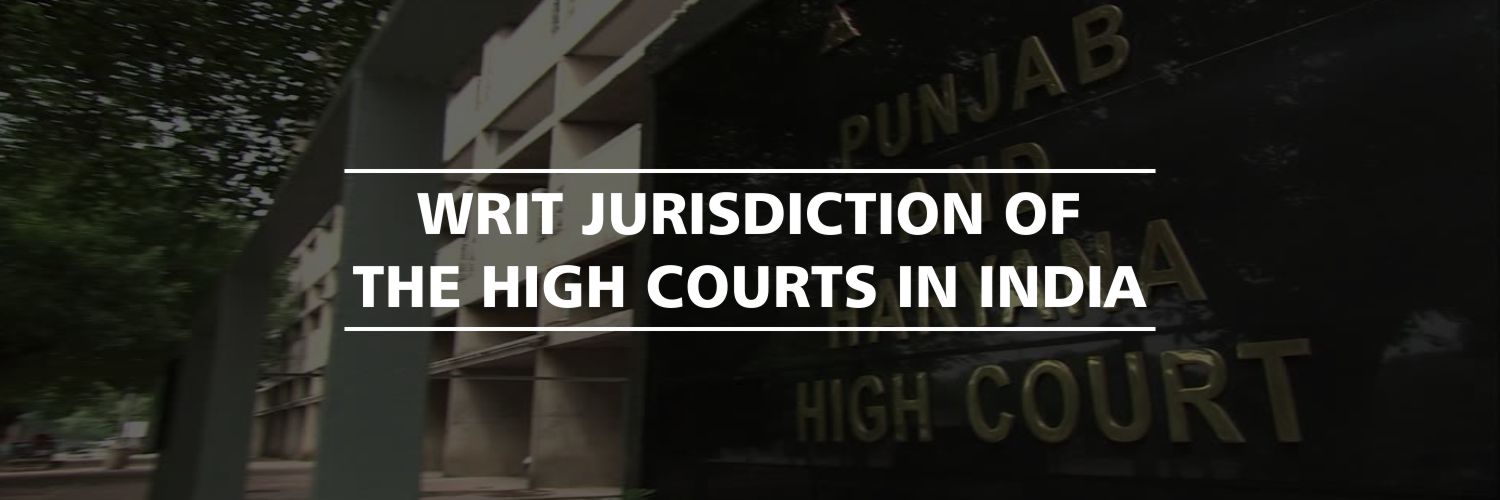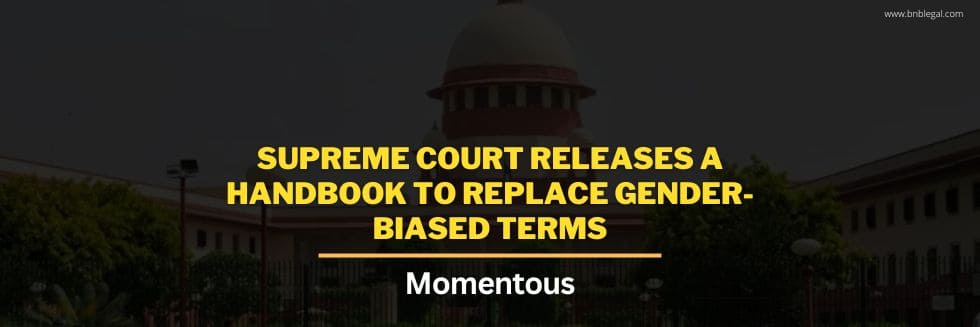Tribunal can be defined as an individual or an institution which has authority to judge and to order. Tribunals are not ordinary courts, these tribunals have jurisdiction over very specific matters or can be stated as that they deal with specific matters only. Judgement of tribunals is as effected as the judgement given by ordinary courts, hence in some matters it becomes essential to have an institution which deals specifically with a single issue and have achieved specialization over it. Provisions for tribunals were added in constitution in the 42nd amendment, two articles were added Art 323A and Art 323B. In India our constitution guarantees justice to all although there are tribunals for specialized dealing in certain matters but Supreme Court of India do have jurisdiction over them provided in article 136 of the Indian Constitution where a person can always appeal to Supreme Court against the order of any tribunal.
Primary objective or intention of the law makers was to decrease the burden of the courts, and secondary was to establish a specialized institution for cases of similar dispute or issue. Some tribunals which function at state level appeal against them can be registered in High Court other which function at national level appeal against them is to be registered in Supreme Court. Neither Supreme Court nor the High Court can interfere in the functioning of the tribunals.
Now as mentioned earlier tribunals are for exclusive matter and have exclusive jurisdiction so there are many tribunals with separate jurisdiction which hear different matters. Some of which are:-
Central Administrative Tribunal
Basic aim of this tribunal was speedy disposal of matters which are in regard with government officials regarding promotion, dispute due to recruitment of persons etc. Origin of this can be traced in Article 323-A constitution but was further developed under Administrative Tribunals Act, 1985. However, almost all the government institution falls under it, however except the paramilitary forces and armed forces or naval services does not falls under this tribunal.
Administrative Tribunals have been set up in many states in the state of Andhra Pradesh, Orissa, Karnataka, Maharashtra, and West Bengal on the same base as that of Article 323-A.
Central Information Commission
The central information has been set up to try cases on Right to Information Act. In 2005 RTI Act was passed which is applicable to all of India except Jammu and Kashmir and in cases of discrepancy or any dispute arising under this act will be tried by this tribunal.
Customs, Excise & Service Tax Appellate Tribunal (CESTAT)
It is a tribunal which deals with the matter of Customs, Excise Duty, and Service Taxes. Disputes under Customs Act, 1962; Central Excise Act, 1944; Finance Act, 1994; Customs Tariff Act, 1975 are also taken up in this tribunal. There are three benches in Delhi, four benches in Mumbai, one bench at Kolkata, one at Bengaluru and one at Chennai. Appeals form this tribunal are entertained by Supreme Court but sometimes high court can be consulted when there is question of law.
Debt Recovery Tribunal
The Debt Recovery Tribunal was set up under Financial Institutions Act, 1993. Primary work of these tribunals is to entertain orders in which some debt is due to bank or a financial institution bank. A districts and sessions judge presides over the tribunal and only has authority to pass a judicial order. The setting of the tribunal in a specific area is depended on the number of cases of debt recovery pending in the area. Appeals from these Tribunals are to be entertained in the high court. Procedure of this tribunal is civil in nature like counter claims, set offs, appointments, ad-interim orders etc. Code of Civil Procedure is applicable in this tribunal. Cases falling under SRFAESIA Act are to be brought up to this tribunal.
Income Tax Appellate Tribunal
“No tax shall be levied or collected except by an authority by law” as per Article 265 of the Indian Constitution. Income Tax Appellate Tribunal was the first tribunal to be set up in 1941. Income Tax in India is governed by Income Tax Act, 1961. When Tax of a person is levied and is assessed appeals regarding to this matter is first entertained by Income Tax Commissioner after his decision it is moved to Income Tax Appellate Tribunals. Appeals from this tribunal are to be entertained by Supreme Court and the tribunal for advisory jurisdiction may refer to the concerned high court. Income Tax Tribunal is an independent body it is not administrated by any government body.
Intellectual Property Appellate Board (IPAB)
The Intellectual Property Appellate Board was constituted in 2003 by Ministry of Commerce and Industry, and it has the jurisdiction to hear appeals against the decision of the registrars under the Trade Mark Act, 1999. Matters falling under Geographical Indication of Goods Act, Patent Amendment Act, Trade Mark Act etc. As it names suggest all the matter under Intellectual Property laws will be dealt under this tribunal, its headquarters are at Chennai offices are also at Mumbai, Delhi, Kolkata and Ahemdabad.
National Consumer Dispute Redressal Commission (NCDRC)
The National Commission is established under the Consumer Protection Act, 1986. Major task of this is to hear cases regarding the consumer dispute it has jurisdiction all over India, similar provisions for setting up of District Redressal Forum at district level and State Commission at state level are provided in the act. Jurisdiction of this commission is to hear appeals from the under jurisdiction court and matters where there amount exceed 1 crore are to be heard in this Tribunal.
Consumer is a person who uses goods or services for personal use and when dispute arises as to these then it will be subject of these tribunals. Appeals from this can be entertained by the Hon’ble Supreme Court that too in some matters where it is felt that a person has suffered grave injustice. In Short, Consumer Commissions are quasi-judicial bodies whose main aim is to provide speedy justice to consumers and quickly provide justice to all.
Securities Appellate Tribunals
The Securities Appellate Tribunal is governed by the Securities and Exchange Board of India Act, 1992. The tribunals tries the orders passed by the SEBI Board, SEBI has the authority to pass legislative, judicial and executive orders hence appeals form SEBI are entertained here. Appeal of this tribunal can be only entertained by the Supreme Court
Telecom Dispute Settlement & Appellate Tribunal (TDSAT)
The Telecom Dispute Settlement and Appellate Tribunal were established in 2000 to decide and adjudicate disputes and appeals under Telecom Regulatory Authority of India Act, 1997. It deals with the appeals from service providers and their consumers of telecom sector.
National Green Tribunal
The National Green tribunal was established in 2010 it was constituted keeping in mind the Rio Conference of 1992 and based on the International Environment principles of polluter pays principle and sustainable development. This was constituted to deal with the matters related to environment and providing compensation for the matters thereto. It will mainly deal civil cases but is not bound to follow the Civil Procedure Code but has to follow the principles of natural justice. It has Five Benches Delhi as Head Quarter and others being Bhopal, Pune, Kolkata and Chennai.
Labour Courts, Industrial Tribunals and National Tribunals under the Industrial Disputes Act, 1947
The labour courts, Industrial Tribunals and National Tribunal are governed by Industrial Dispute Act, 1947. These courts or tribunals deals with the matters specifically relating to Industrial Disputes weather it may be Dismissal of work mans, legality of strikes, hours of work, wages etc. all or the issue may be setting up of Industries. At present there are 22 such courts and tribunals.
Motor Accidents Claims Tribunals
The Motor Claims Tribunals is constituted under Motor Vehicle Act, 1988. The Act provides compensation to the families of victim who have been killed or injured in accidents or hit and run cases act also provides for compulsory insurance against third party. This tribunal is appropriate for dealing all those matters. Cases of these types can be taken up by their lawyers, their representatives or their families.
Armed Forces Tribunal
Armed force tribunal was constituted in 2007 under Armed Force Tribunal Acts, it is a military tribunal constituted specially to deal with defence related matters, primary objective of this tribunal was speedy remedy for cases where immediate attention is needed also law followed here is in accordance with the military law. Cases like Court Martial, Dismissal, and Suspension are conducted here; armed force tribunal bill does not give this tribunal jurisdiction over paramilitary forces, Assam rifles and coast guard.
Other Tribunals
- Competition Appellate Tribunal
- Airports Economic Regulatory Authority Appellate Tribunal
- National Highways Tribunal
- Cyber Appellate Tribunal
- Employees Provident Fund Appellate Tribunal
- Copyright Board
- Railways Rates Tribunal
- Appellate Tribunal for Foreign Exchange
- Appellate Tribunal under forfeiture of Property Act
These are the major Tribunals that are established in our countries provisions are also regarding other tribunals, authenticity of these tribunals have been challenged time and again stating them unconstitutional and should be removed, but supreme court always held that tribunal are not discrimination rather courts for speedy disposal and are a necessity in Indian Scenario.





